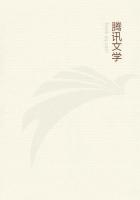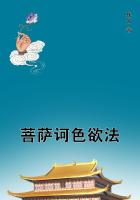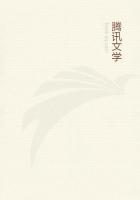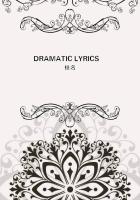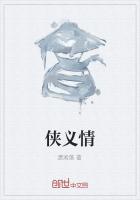"All men," says Dr. Dibdin, "like to be their own librarians." Awriter on the library has no business to lay down the law as to the books that even the most inexperienced amateurs should try to collect. There are books which no lover of literature can afford to be without; classics, ancient and modern, on which the world has pronounced its verdict. These works, in whatever shape we may be able to possess them, are the necessary foundations of even the smallest collections. Homer, Dante and Milton, Shakespeare and Sophocles, Aristophanes and Moliere, Thucydides, Tacitus, and Gibbon, Swift and Scott,--these every lover of letters will desire to possess in the original languages or in translations. The list of such classics is short indeed, and when we go beyond it, the tastes of men begin to differ very widely. An assortment of broadsheet ballads and scrap-books, bought in boyhood, was the nucleus of Scott's library, rich in the works of poets and magicians, of alchemists, and anecdotists. A childish liking for coloured prints of stage characters, may be the germ of a theatrical collection like those of Douce, and Malone, and Cousin. People who are studying any past period of human history, or any old phase or expression of human genius, will eagerly collect little contemporary volumes which seem trash to other amateurs. For example, to a student of Moliere, it is a happy chance to come across "La Carte du Royaume des Pretieuses"--(The map of the kingdom of the "Precieuses")--written the year before the comedian brought out his famous play "Les Precieuses Ridicules." This geographical tract appeared in the very "Recueil des Pieces Choisies," whose authors Magdelon, in the play, was expecting to entertain, when Mascarille made his appearance. There is a faculty which Horace Walpole named "serendipity,"--the luck of falling on just the literary document which one wants at the moment. All collectors of out of the way books know the pleasure of the exercise of serendipity, but they enjoy it in different ways. One man will go home hugging a volume of sermons, another with a bulky collection of catalogues, which would have distended the pockets even of the wide great-coat made for the purpose, that Charles Nodier used to wear when he went a book-hunting. Others are captivated by black letter, others by the plays of such obscurities as Nabbes and Glapthorne. But however various the tastes of collectors of books, they are all agreed on one point,--the love of printed paper. Even an Elzevir man can sympathise with Charles Lamb's attachment to "that folio Beaumont and Fletcher which he dragged home late at night from Barker's in Covent Garden." But it is another thing when Lamb says, "I do not care for a first folio of Shakespeare." A bibliophile who could say this could say anything.
No, there are, in every period of taste, books which, apart from their literary value, all collectors admit to possess, if not for themselves, then for others of the brotherhood, a peculiar preciousness. These books are esteemed for curiosity, for beauty of type, paper, binding, and illustrations, for some connection they may have with famous people of the past, or for their rarity. It is about these books, the method of preserving them, their enemies, the places in which to hunt for them, that the following pages are to treat. It is a subject more closely connected with the taste for curiosities than with art, strictly so called. We are to be occupied, not so much with literature as with books, not so much with criticism as with bibliography, the quaint duenna of literature, a study apparently dry, but not without its humours.
And here an apology must be made for the frequent allusions and anecdotes derived from French writers. These are as unavoidable, almost, as the use of French terms of the sport in tennis and in fencing. In bibliography, in the care for books AS books, the French are still the teachers of Europe, as they were in tennis and are in fencing. Thus, Richard de Bury, Chancellor of Edward III., writes in his "Philobiblon:" "Oh God of Gods in Zion! what a rushing river of joy gladdens my heart as often as I have a chance of going to Paris! There the days seem always short; there are the goodly collections on the delicate fragrant book-shelves." Since Dante wrote of -"L'onor di quell' arte Ch' allumare e chiamata in Parisi,""the art that is called illuminating in Paris," and all the other arts of writing, printing, binding books, have been most skilfully practised by France. She improved on the lessons given by Germany and Italy in these crafts. Twenty books about books are written in Paris for one that is published in England. In our country Dibdin is out of date (the second edition of his "Bibliomania" was published in 1811), and Mr. Hill Burton's humorous "Book-hunter" is out of print. Meanwhile, in France, writers grave and gay, from the gigantic industry of Brunet to Nodier's quaint fancy, and Janin's wit, and the always entertaining bibliophile Jacob (Paul Lacroix), have written, or are writing, on books, manuscripts, engravings, editions, and bindings. In England, therefore, rare French books are eagerly sought, and may be found in all the booksellers' catalogues. On the continent there is no such care for our curious or beautiful editions, old or new. Here a hint may be given to the collector. If he "picks up" a rare French book, at a low price, he would act prudently in having it bound in France by a good craftsman. Its value, when "the wicked day of destiny" comes, and the collection is broken up, will thus be made secure. For the French do not suffer our English bindings gladly; while we have no narrow prejudice against the works of Lortic and Cape, but the reverse. For these reasons then, and also because every writer is obliged to make the closest acquaintance with books in the direction where his own studies lie, the writings of French authorities are frequently cited in the following pages.

